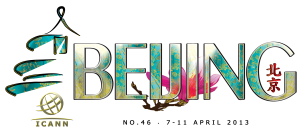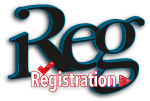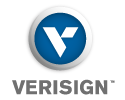
About ICANN Meetings
ICANN meetings in brief
- ICANN meetings are held three times each year in different regions of the globe to enable attendees from around the world to participate in person. One meeting each year is also the organization's annual general meeting, during which new Board members take their seats.
- ICANN meetings are free and officially run five days (Monday to Friday). There are also a few pre-meeting workshops and working sessions when the volunteer members of our supporting organizations and advisory committees initiate their work.
- ICANN meetings offer the best opportunity for face-to-face discussions and airing of opinions among knowledgeable people dedicated to the continued stable and secure operation of the Internet.
- ICANN meetings offer a variety of sessions such as workshops, open forums, and working meetings on the development and implementation of Internet policies.
- Remote participation is possible while the meetings are going on. We offer several tools such as streaming live audio and video, chatrooms, and online question boxes.
- Detailed logistics and information about each meeting venue, registration, and remote participation can be found at the dedicated website created for each meeting.
- ICANN’s Fellowship program supports attendance at ICANN meetings by selected individuals from stakeholder groups around the world.
Where and when do ICANN meetings take place?
ICANN meetings are held three times a year in different regions, with the Board typically choosing the actual location at least a year out from the meeting. You can see the list of regions and countries of past and upcoming ICANN meetings at http://meetings.icann.org/calendar.
What happens between meetings?
In the period between meetings, the SOs and ACs work closely with ICANN staff to make progress on the work agreed to during the most recent meeting. The results are then posted for public comment on the ICANN website to allow anyone in the Internet community to become acquainted with the latest developments and offer opinions on them. ICANN’s advisory committees also prepare reports to inform you about these issues and their potential impact on the Internet. A summary and analysis of all the comments is prepared and relevant documents are revised accordingly in time for your further review at the next meeting.
What topics are discussed?
A broad range of Internet-related topics are discussed at each meeting. The agenda is ever changing and as dynamic as the Internet itself, but typically they cover contractual issues with the retail and wholesale arms of the Domain Name System, ways to respond to illegal or abusive use of the Internet’s naming systems, internal restructuring, and new initiatives for increasing competition on the Internet.
Who should attend?
ICANN meetings are all about participation, collaboration, and finding solutions to the small – and large – problems that the Internet constantly faces. As a meeting attendee you could be from almost any profession and from any corner of the planet. ICANN is set up to allow everyone affected by its work – and that is pretty much everyone – to have a say in its processes.
To ensure that the organization stays flexible and changes to meet the needs and demands of a rapidly changing Internet, not only do the SOs, ACs, and the Board go through regular reviews, but ICANN also maintains a strong culture of general public participation.
Typical attendees include government representatives, business managers, IT managers and consultants, DNS industry managers and experts, intellectual property managers, academics, and others invested in the continuing stable, secure and resilient operation of the Internet. End users are also well represented. If you prefer to participate remotely, there are a wide range of mechanisms that make that possible.
What are the benefits of attending?
When you attend, either in person or remotely, you are better able to:
• Understand how Internet policies are created and how the Internet works.
• Gain knowledge about the main issues facing the Internet today and in the near future.
• Learn and take the information back to your organization.
• Enhance ICANN’s work by participating in all key developments.
What is an ICANN meeting and what happens?
ICANN meetings provide the opportunity for an internationally diverse group of individuals and organizations to come together and discuss and develop policies for the Internet‘s naming systems. The organization’s staff of around 100 runs the meetings and coordinates with its volunteer supporting organizations (SOs) and advisory committees (ACs). The SOs and ACs are represented by governments, managers of Domain Name System elements (registries, registrars, ISPs), technical, business and intellectual property communities, academia, Internet users, and so on. ICANN’s Board, which is international in nature, ultimately weighs and makes the final decisions about Internet policies and processes.
One committee, the Governmental Advisory Committee or GAC, is made up of representatives from governments and governmental entities. Currently numbering 130 members, they come together at each meeting to provide a unique regulatory, legal, linguistic and cultural perspective on the issues being discussed during the meeting.
ICANN’s international meetings have been a staple of ICANN’s multi-stakeholder bottom-up consensus-building model since its formation in 1998. At the annual general meeting, one of each year’s three meetings, you have the opportunity to meet newly seated members of the Board of Directors and thank outgoing Board members for their service.
How are ICANN meetings structured?
ICANN meetings run nearly a full week and follow a theme. Monday is the official opening where the week’s work is outlined in the morning, and the main issues given specific sessions in the afternoon. Tuesday is constituency day, when the Generic Names Supporting Organization’s (GNSO’s) several constituencies meet separately. At the same time, the Country Code Names Supporting Organization (ccNSO), GAC and At-Large community meet all day in a variety of different sessions.
The councils of the ACs and SOs make decisions on Wednesday while workshops inform the community about new and upcoming issues. Wednesday also sees sessions dedicated to internal review of ICANN’s own structures. A gala event ends the evening.
Is there a membership or any other prerequisite to attend?
No. No prerequisite or membership is necessary to attend an ICANN meeting. Attendance is free and you can access and read all documents that ICANN publishes before and during each meeting. You can also make you views known in the numerous feedback sessions and the main public forum that takes place at each meeting. ICANN’s SOs and ACs also are made up of volunteer members. Please visit http://www.icann.org/en/structure/ to learn how you can get involved in these organizations.
How do I register?
Each ICANN meeting has an online pre-registration form posted on the meeting website. Pre-registrations are strongly encouraged to help ICANN plan better. You can find a list of registered attendees at ICANN’s website.
There is a registration booth at the venue where you can pick up a meeting kit with a detailed schedule.
What are the registration fees?
Attendance at an ICANN meeting is free to the general public, although you will have to pay for your own travel and lodging. ICANN negotiates group discount rates at the host hotel and hotels nearby to help you afford to attend the event. ICANN also offers limited financial assistance to members of the SOs and ACs. There is a Fellowship program for selected candidates from developing countries who otherwise could not afford to attend.
Does ICANN subsidize attendance for people who cannot afford it?
Yes, but on a limited basis through the Fellowship program. An ICANN fellowship is a one-time grant of support awarded to individuals from stakeholder groups around the world to attend ICANN meetings. It covers the cost of airfare and hotel, and provides a stipend after successful completion of the program to assist in covering basic expenses. Recipients are expected to actively contribute to ICANN processes and be a part of the next generation of ICANN leadership. Candidates are usually sought from governments, country code top-level domains (ccTLDs), academia, nonprofits, and the private sector. Fellows are selected through an independent selection committee, based on published criteria, and are held to certain terms and conditions which were specifically created to hold this program and its fellows to a certain standard of participation.
For more information, visit the Fellowship program webpage at: http://www.icann.org/fellowships.
How do I make my opinions heard?
A core component of any ICANN meeting is your ability to ask questions and comment on the discussions that take place during the week. Most sessions are open and typically set aside time either at the end of each presentation or at the end of a particular meeting for you and others to raise points.
In some cases you must be a member of a particular group to speak, but contributions by non-members are usually heard and valued. Sessions, especially in the main room, often have dedicated question-and-answer components. There are also two special meetings in which public comment is particularly invited.
Can I still participate if I cannot attend a meeting in person?
Yes. A variety of means of remote participation enable community members who cannot travel to meetings to contribute your efforts and have your opinions heard. Every ICANN meeting – along with specific sessions – has its own webpage, accessible from the main schedule page, where you can find presentations and transcripts of the meeting as well as any other relevant information such as videos. That page also has embedded in it a chatroom. If you prefer to participate remotely, you must register with the site and login before using the chatroom.
If you cannot participate in real time, each meeting’s activities, discussions, videos, and presentations are archived on ICANN’s website, providing a resource for the entire community.
I’m attending for the first time. What else do I need to know?
ICANN meetings usually follow a casual dress code.
Several meeting sessions happen concurrently. Discussions of the various topics are often dynamic. The technical terms are sometimes difficult to follow and some of the topics being discussed are in advanced stages of development.
We suggest that newcomers get acquainted with the main terms and current work before eachmeeting by going to the meeting’s dedicated website. At a minimum, you should also attend the Monday sessions, such as the welcome ceremony and President’s report, as well as the welcome reception. There is usually an Introduction to ICANN session on the first day that is specifically designed to talk people through the meeting and answer any questions they may have.
How do I participate if I am not fluent in English?
English is the main language at ICANN meetings but since attendees come from all over the world, translation, scribing, and interpretation are often available, especially for sessions in the main room. The languages featured vary depending on the location and needs of the majority of attendees. Transcripts of major meeting sessions are posted promptly on each meeting’s website.
Most documents produced for discussion at meetings are made available in six languages: Arabic, Chinese, English, French, Spanish and Russian. If you have trouble finding a document or communicating properly, other community members are usually very happy to help.
Our recent meeting in Mexico City is typical. We provided 93 chatrooms over the five days for more than 120 sessions overall. Interpretation was made available for all sessions in the main room for six days and for more than 40 sessions in total. Audio feeds also were available for more than 90 sessions.
In addition, we provide an online question box for people participating remotely to ask questions that will be answered live during certain sessions. It is also open for attendees who feel uncomfortable asking a question at the public microphone. The Mexico City meeting question box was very popular, eliciting 96 questions from 36 individuals. Although it is not possible to answer every question, all your questions are recorded, answered, and emailed back to you. In addition, all questions and answers are published on ICANN’s main website, the ICANN blog, and each meeting’s dedicated website.
Where can I find more information?
Each meeting has a dedicated website that acts as a broader guide to the conference with details on the venue, a conference map, the local area, the social events during the week, and answers to frequently asked questions about ICANN meetings.
Still have questions on how to participate? Contact the meeting staff via email to meetings@icann.org. To learn more about the Fellowship program, go to http://www.icann.org/en/fellowships/. For a schedule of past and coming meetings, go to http://meetings.icann.org/calendar. For the Press page, go to http://www.icann.org/en/press/.
Exhibition and sponsorship
If you belong to an organization that is interested in having an exhibit at a meeting or sponsoring a meeting, please contact meeting-sponsorship@icann.org.















